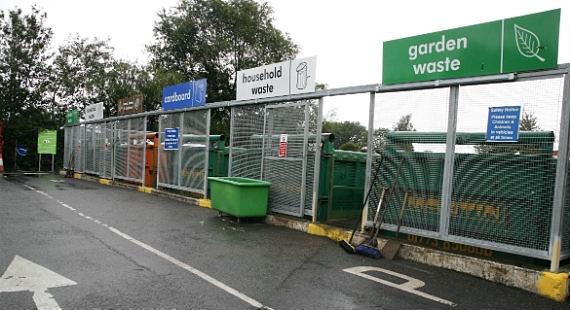
Recycling rates in Cheshire East have fallen slightly over the last five years, writes Ethan Davies.
New data, sourced from the Department for Environment, Food and Rural Affairs also shows that Cheshire East Council collected 501.3kg of household waste per person from homes in the area in 2019-20 — 18.3kg more than five years earlier.
Of this, 56.5% was sent for reuse, recycling or composting – five years ago the rate was 56.8%.
This is well above the rate for the North West, where 45.6% of household waste was sent for recycling or reuse in 2019-20.
Cllr Laura Crane, CEC cabinet member for highways and waste, said: “Considering the volume of waste we collect across the borough, our recycling rates in Cheshire East are impressive.
“We outperform many other local authorities standing at 28th out of 341 councils for the amount of waste we are able to recycle.
“At 56.5%, we are the fifth highest unitary authority when it comes to recycling and the best in the north west which means we celebrate the fact that our recycling rate is 10% above the North West average.
“While our recycling rate has slipped a little we are still above the national target of 50% and with food waste recycling through our new composting process, we have recorded a 4.7 per cent increase in rates.
“Only five other authorities recorded a higher increase.
“However, we cannot be complacent, and we continue to urge our householders to recycle whenever and whatever they can.
“We must praise our Ansa waste service for their heroic efforts in continuing all three household waste collection streams during this very challenging period of the pandemic.”
The total of 501.3kg of waste collected per person is 63.2kg higher than the north west average of 438.1kg, and 94kg above the England average.
The news has prompted environmental charity Keep Britain Tidy to say there is an “urgent need” to completely overhaul how waste collection and disposal is approached, with more responsibility on producers to reduce packaging.
Allison Ogden-Newton, chief executive officer, said: “Recycling rates have stalled for a decade.
“The hope is that the Environment Bill will see the crucial measures outlined in the government’s Resources and Waste Strategy actually come about.
“These include Extended Producer Responsibility, a Deposit Return Scheme for drinks containers and consistent recycling collections, including food waste, which if they happen will make all the difference and get us where we need to be in terms of our current goals.
“If, through introducing these measures, we can dramatically reduce the amount of packaging reaching the market, ensure that refillable options are incentivised and insist all single-use packaging is 100 per cent closed loop recyclable consistently across the national, then, and only then, we will hit our goals and fix a system that is currently going nowhere.”





















Recent Comments